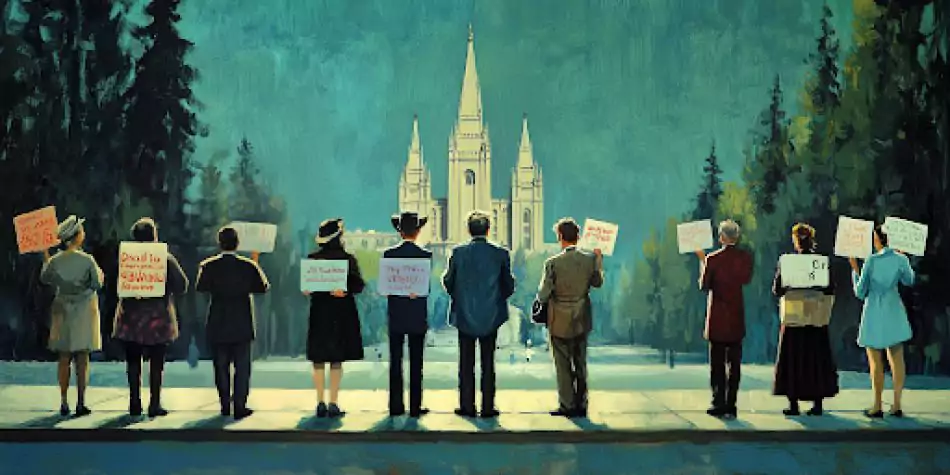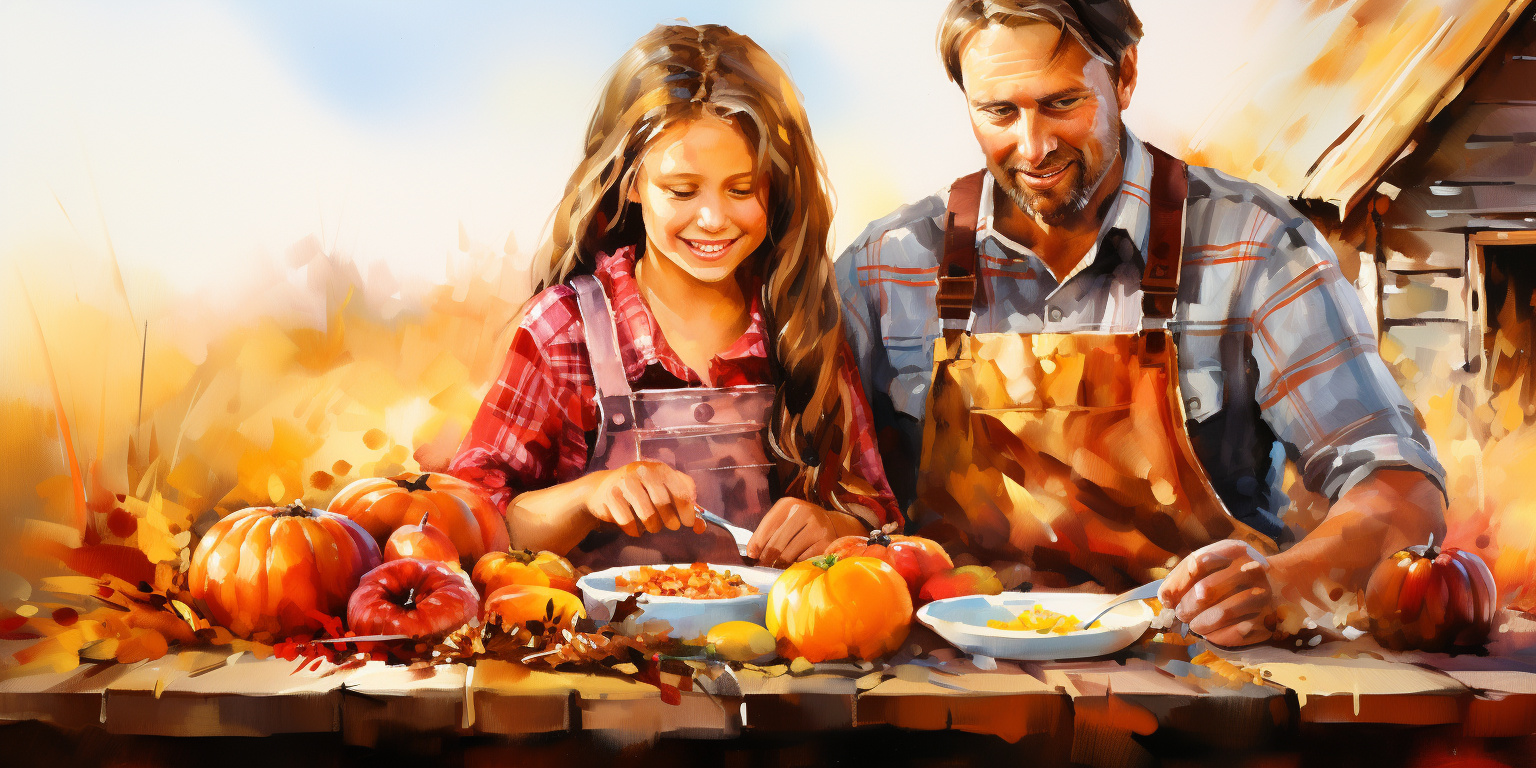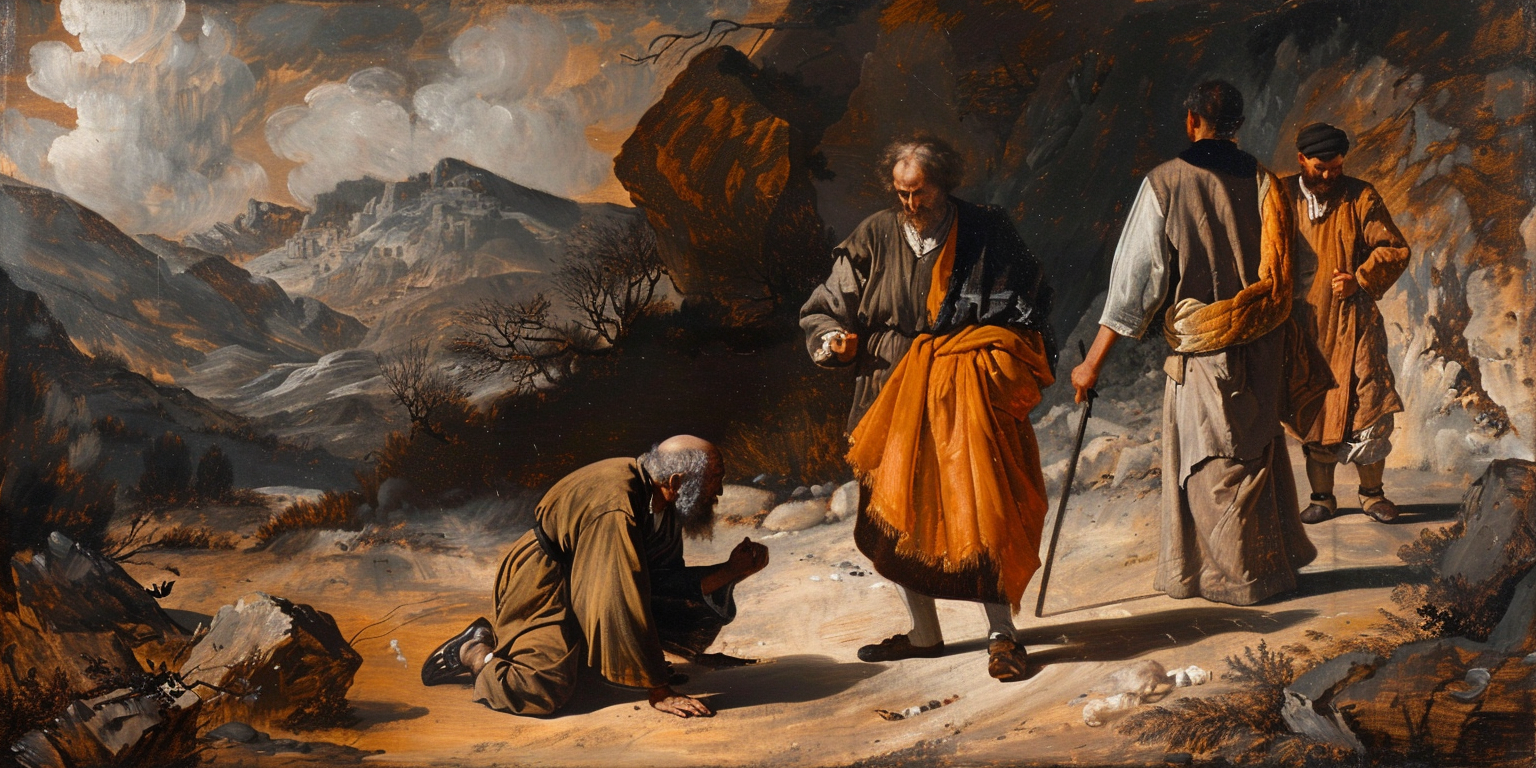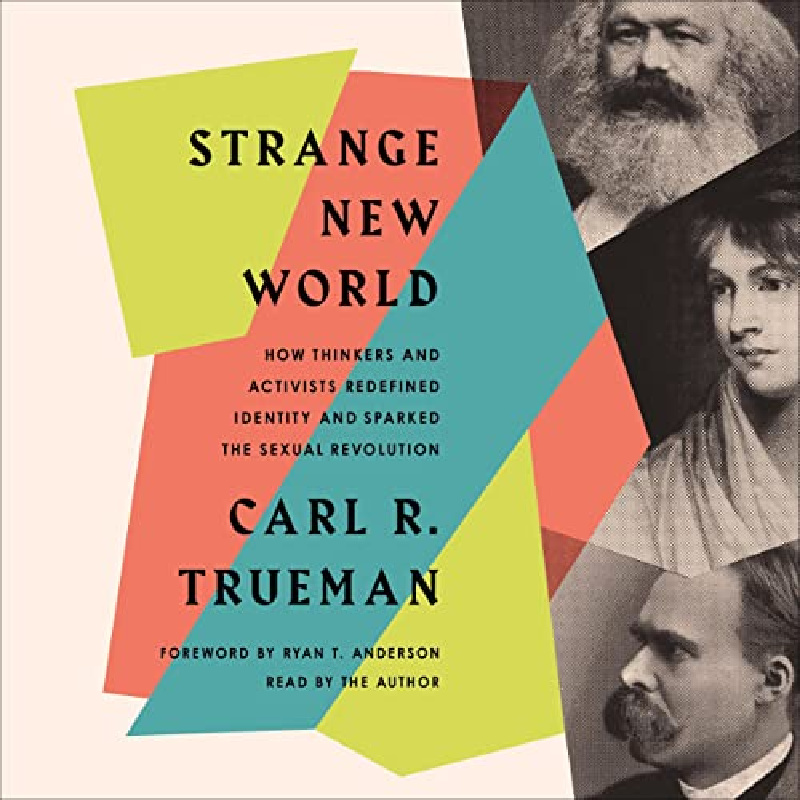Public Square Magazine seeks to understand the perspective of Latter-day Saints on issues of importance in the public square. Since helping to start the magazine, I’ve had the chance to examine the intersection of faith and politics and observe how and why Latter-day Saints vote as they do.
Since the 2016 election cycle, curiosity about what motivates Latter-day Saint voters has spiked. Their votes have been more up for grabs than in recent generations, and they play key roles in swing states such as Nevada and Arizona.
What follows is an analysis of the different types of US-based Latter-day Saint voters based on my experience in talking to these different groups.
Group #1 Morality-Crisis Fighters—Trump Voters
These voters are concerned about society turning on them and their values. They see support in major institutions such as academia or news media for acts they find deeply immoral, such as abortion or chemical sterilization of children, as a crisis.
Morality-crisis fighters are very sensitive to double standards in media coverage and tend to feel alienated from contemporary life.
These voters see Donald Trump as an important figure in standing up to these forces. They find virtue in his willingness to violate norms to attack those they believe are deeply problematic. The widespread opposition against Trump seems to solidify their perspective on how important he is.
Many in this group see Trump as someone who has been provided by God for this moment.
Latter-day Saints in these groups often believe the United States is in a similar state as the Nephite nation was in the Book of Helaman. They are concerned about “secret combinations.” These voters tend to see Trump as a fighter for their values in a similar vein to Captain Moroni.
The defining image for this group is Trump’s defiant fist in the air after the assassination attempt.
Group #2 Character-first Centrists—Harris Voters
These voters see this election as another referendum on Donald Trump. They tend to view Kamala Harris as representative of the norm but view Trump as a uniquely immoral character.
They understand the recent instruction from the Church’s First Presidency that “members should seek candidates who best embody [gospel] principles” primarily in terms of character rather than policy positions. These voters seem to compare Trump to a King Noah-type figure. Additionally, because of the acceptance of Trump’s immoral behavior, they also tend to see the country as facing a deep moral crisis.
The character-first centrist group is more conservative on social issues, but they either have little history in party politics or are independents.
For these voters, the defining moment in determining their vote is the release of the Access Hollywood tape, where Trump bragged about sexually assaulting women.
Group #3 Loyal Republicans—Trump Voters
These voters are conflicted about Donald Trump but will vote for him. From this perspective, they seem to believe that all politicians have low moral character, and Trump is simply lumped in with them.
However, what they do know is that the Republican party has long represented their values while the Democratic party has long opposed their political goals.
Loyal Republicans are not deeply involved with political news or strategy. They vote for representatives, so they don’t have to pay attention to all of “that.” You might hear them dismiss political questions with a “render unto Caesar” type of response.
This group also tends to view the first Trump term as a positive time for the US and conservative success while dismissing critiques to the contrary as apparent media bias.
Additionally, they tend to value loyalty, unity, and community and believe that the senior leaders of the Church of Jesus Christ are largely Republican; therefore, that position feels like a safe bet.
Group #4 Agency-focused Progressives—Harris Voters
These voters include the few long-time democratic loyalists among Latter-day Saints who new voters have now joined.
They are enthusiastic members of the Democratic party.
They worry about state abortion bans that don’t include exceptions for rape, incest, and the life of the mother, because that would prevent people from getting abortions that the Church’s position allows.
In terms of religion, these voters are focused on agency. They see the Democratic party values as more aligned with Latter-day Saint beliefs on issues like caring for the needy or immigration. They also tend to see the Republican party as having moved to the far right under Trump.
Latter-day Saints who reject the Church’s teachings on LGBT+ issues find common cause with this group.
One of the most striking images for this group is the report on caged immigrant children that was first made public during the Trump administration.
This position is common for Latter-day Saints in careers such as academia, where conservatism is untenable. And it tends to be overrepresented among the Latter-day Saint talking class.

Group #5 Pragmatic Institutional Conservatives—Trump Voters
These voters tend to be politically savvy. This group avoided Donald Trump in primary elections, but they’ve come to recognize his political potency. Some respect it, some resent it, but they all accept it as long as it helps their primary goal of pushing the federal government toward the Republican party.
Pragmatic institutional conservatives see a presidential election as less about the top of the ticket and more about the tens of thousands of individuals who will shape federal agencies. This group includes those who want to ensure that the Supreme Court remains in conservative hands.
People in this group tend to be very concerned with social issues. They believe the Republican party is much more closely aligned with the Church of Jesus Christ on abortion, religious freedom, gender transitions, and same-sex marriage. When they apply their faith to the election, they think about issues like these.
These voters see Kamala Harris as dangerously left-wing on social issues and believe a Republican administration is the only way to stop that, regardless of who the president is.
Group #6 Reluctant Social Conservatives—Harris Voters
These voters care deeply about social conservatism but also have equally deep concerns about another Trump presidency.
These voters have rationalized voting for Harris in this election because they believe the conservative majority on the Supreme Court can prevent any egregious progressive excesses.
These are the voters most likely to talk about “holding their nose” to vote or voting for the “lesser of two evils.”
People in this category use a variety of rationales for voting for Harris. Some are happy that the Biden administration has led one of the best COVID economic recoveries in the world. Others are concerned about Trump’s character or policy issues. What unites them, however, is their strong social conservatism and rationalization to vote for Harris because of the Supreme Court’s strong conservative bent.
Reluctant social conservatives tend to view their religious obligations in pragmatic terms, trying to figure out how to create the most good with their one vote.
Group #7 Disenfranchised Populists—Trump Voters
Among Latter-day Saints, these voters tend to be rural but can include union workers as well. They may not love Trump’s morality or demeanor, but they’ll vote for him because they view him favorably compared to politicians overall. Because Trump is seen within this group as “authentic,” they can imagine spending time with him and admire his business success.
Disenfranchised populists don’t feel besieged so much as they feel forgotten. For them, this election is a referendum not on Trump or Harris but on the Democratic party’s alliance with out-of-touch urban academia. These are the voters you will hear complain most often about “wokism.” Some of these voters were even previously inclined to vote for Democratic candidates.
However, their biggest issue is simply the economy. For them, the defining image for this election is the Joe Biden “I did that” sticker placed at gas pumps, and they react negatively to assertions that the economy is doing fine.
Voters in this group consider the intersection of their faith and politics the least of any group. But when they do, they see Trump as honest and caring for less fortunate folks like them.
These voters tend to focus the most on tying Harris to the Biden administration.
Some in this group are more sincerely aligned with the pragmatic institutional conservative group, but they recognize the political potency of this argument and focus on it in their public advocacy.
Group #8 Democracy Absolutists—Harris Voters
This group of voters is largely the descendants of the “Never-Trumpers.” They also view the election as primarily a referendum on Trump, not so much about his character or his policies as about his orientation toward democracy itself.
Democracy absolutists don’t feel they can rationalize Trump’s shortcomings for policy goals because they believe he could unravel the American experiment itself.
This group of voters feel vindicated in their assessment of Trump by his behavior concerning the certification of the 2020 election. January 6th is the defining issue for them. While some of this group are long-time democrats who prioritize this issue over others, most are conservatives who find the threat to the rule of law deeply unconservative.
This group believes that remarks by President Dallin H. Oaks of the first presidency were targeted at Donald Trump. He said, “We obey the current law and use peaceful means to change it. It also means that we peacefully accept the results of elections. We will not participate in the violence threatened by those disappointed with the outcome.”
Voters in this group can see Trump as a figure like Amalakiah, who sought to overturn the Nephite election of a chief judge and reinstate a king. They say things like, “I would vote for a rock over Trump.”
Group #9 Jesus 2024—Write in Voters
These voters hold their vote as a sacred privilege. For these voters, a candidate must reach a certain threshold of acceptability before they are willing to vote for them. In their assessment, none of the candidates in this cycle have met that threshold.
These voters tend to share the concerns about Trump’s immorality and authoritarianism, so they will not vote for him. But they will not be complicit in allowing Harris’ social positions to advance.
For people in this group, their vote is an endorsement. They take the religious aspect of their vote very seriously, and they cannot endorse someone they believe will hurt people. They look down on the “lesser of two evils” argument with the rejoinder that they won’t vote for evil of any kind.
Voters in this group are often very focused on abortion issues, and some of them see Trump’s pivot to the center on abortion as part of what disqualifies him.
These voters see the United States at a similar stage to the period in 3 Nephi when wickedness and destruction abounded, and the people were waiting for the arrival of Jesus Christ. Thus, you can hear some of them advocate for “Jesus 2024.” But sincerely, these voters either plan to sit out or write in a protest candidate.
Hopefully, this analysis will help politicos better understand and speak to the different types of Latter-day Saint voters and help Latter-day Saints better understand the others in their congregations.
















